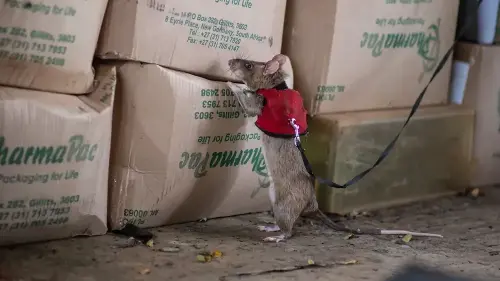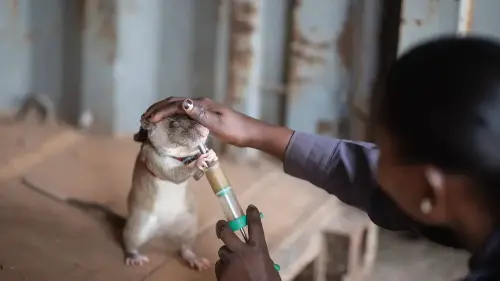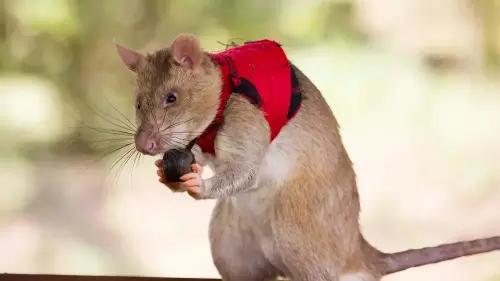African giant pouched rats trained to detect illegally trafficked wildlife products. Successful training programme enables rats to identify elephant ivory, rhino horn, African blackwood, and pangolin scales. Further research needed to evaluate rats' performance in field settings and with different wildlife specimens.

These giant rats, known for their impressive sense of smell and ability to differentiate between scents, have been equipped to identify items such as elephant ivory, rhino horn, African blackwood, and pangolin scales - the most trafficked mammal in the world.
The black market for illegal wildlife products poses a significant global challenge, prompting authorities and scientists to explore innovative solutions. Scent-detection animals, like the African giant pouched rats, have emerged as a promising tool in combating wildlife trafficking due to their exceptional olfactory abilities and agility in navigating various environments.

In a recent study published in Frontiers in Conservation Science, researchers detailed the rigorous training process undertaken by 11 African giant pouched rats to become proficient in detecting target scents. These rats were trained to distinguish between different scents, memorise target scents over extended periods, and identify specific wildlife products amidst a variety of distractions.
Despite the success of the training programme, researchers emphasised that further studies are needed to assess the rats' performance in real-world scenarios. The team acknowledged the importance of conducting additional research to evaluate the rats' ability to detect different specimens and concentrations of wildlife products outside of a controlled laboratory environment.

To prepare for potential field deployment, the research team has outfitted the rats with custom-made vests featuring a small ball that triggers a beeping sound when pulled. This innovative design allows the rats to alert handlers when they detect a target scent, demonstrating the versatility of the hardware in various applications, such as detecting smuggled wildlife at shipping ports.
Dr Kate Webb, co-first author of the training study, highlighted the significance of the vests as a practical tool that could enhance wildlife detection efforts across different settings. While the study represents a significant milestone in wildlife conservation, the researchers are committed to further refining the rats' detection capabilities for future implementation in real-world conservation efforts.
African giant pouched rats trained to detect illegally trafficked wildlife products
Successful training programme enables rats to identify elephant ivory, rhino horn, African blackwood, and pangolin scales
Further research needed to evaluate rats' performance in field settings and with different wildlife specimens
Source: IFL SCIENCE